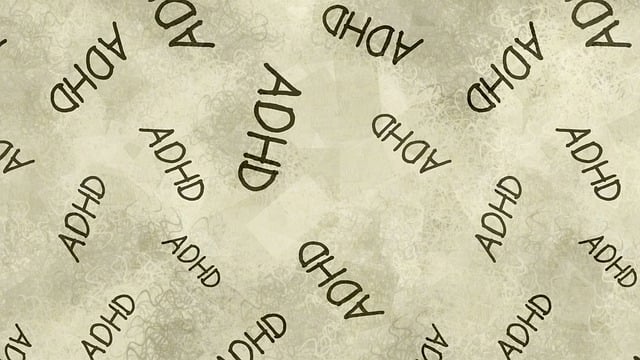Westminster Couples Counseling Therapy (WCT) offers personalized coaching programs to enhance relationships, communication, and overall mental wellness. WCT integrates evidence-based practices like CBT with client-centered approaches to create tailored self-care routines for stress management and emotional healing. Remote coaching via digital platforms and video conferencing breaks geographical barriers, providing accessible support. Evaluation methods, including participant feedback and objective assessments, measure the impact of WCT programs, ensuring continuous improvement in mental wellness support.
Mental wellness coaching programs are gaining traction as essential tools for fostering resilience and improving overall well-being. In today’s fast-paced world, individuals seek accessible support for their mental health, making these programs a game-changer in healthcare. This article explores the development of effective coaching curricula tailored to diverse needs, the integration of evidence-based practices, and the rising role of technology in delivering remote services, as seen in Westminster Couples Counseling Therapy. We also delve into evaluation methods to measure the impact and success of these transformative initiatives.
- Understanding the Need for Mental Wellness Coaching Programs
- Designing Effective Coaching Curricula for Different Needs
- Integrating Evidence-Based Practices in Coaching Sessions
- The Role of Technology in Delivering Remote Coaching Services
- Measuring Success and Impact: Evaluation Methods for Wellness Coaching Programs
Understanding the Need for Mental Wellness Coaching Programs

In today’s fast-paced world, mental wellness is a cornerstone of overall health and well-being. The demand for effective support has led to a growing recognition of the importance of specialized coaching programs. One such vital area is Westminster Couples Counseling Therapy, which offers tailored solutions to individuals seeking healthier relationships and improved communication. By addressing the unique challenges couples face, this therapy provides a safe space to enhance connection, resolve conflicts, and build resilience.
The need for mental wellness coaching extends beyond romantic partnerships, however, as social skills training and self-care practices are essential components of personal growth. Coaching programs can empower individuals to develop communication strategies that foster understanding and empathy in various relationships. These initiatives, whether focused on couples or individual growth, contribute to a more balanced and fulfilling life by equipping people with the tools to navigate life’s complexities and promote mental wellness.
Designing Effective Coaching Curricula for Different Needs

Designing effective coaching curricula requires a nuanced approach to cater to diverse needs. At Westminster Couples Counseling Therapy, we understand that every individual and relationship is unique, necessitating personalized strategies for mental wellness. Therefore, coaching programs should incorporate flexible modules that address specific challenges, such as stress management, anxiety reduction, or conflict resolution techniques. This adaptable curriculum ensures that clients receive tailored support aligned with their current emotional healing processes.
The development of these curricula involves a deep exploration of various therapeutic methods and integrating them into practical, actionable steps for self-care routine development for better mental health. By combining evidence-based practices and client-centered approaches, coaches can create an inclusive environment where individuals feel empowered to navigate their mental wellness journeys effectively.
Integrating Evidence-Based Practices in Coaching Sessions

Incorporating evidence-based practices is a cornerstone of effective mental wellness coaching programs. Coaches play a vital role in guiding individuals through challenging times by drawing from well-researched methodologies, ensuring that clients receive the highest quality care. For instance, techniques like cognitive-behavioral therapy (CBT) have proven successful in managing anxiety and depression. By integrating these practices into coaching sessions, professionals can help clients identify negative thought patterns and replace them with healthier, more positive ones, fostering a significant improvement in mental health awareness.
The integration of evidence-based practices also equips coaches to address various aspects of client wellbeing, including stress management. Through tailored strategies, such as mindfulness exercises or relaxation techniques, coaches aid in cultivating resilience and coping mechanisms. By combining these methods with the foundational principles of mind over matter, where personal beliefs and perspectives are explored, coaches create a comprehensive approach to mental wellness. This holistic strategy, reminiscent of Westminster Couples Counseling Therapy’s multifaceted approach, ensures that clients not only navigate challenges but also develop lasting strategies for improved overall wellbeing.
The Role of Technology in Delivering Remote Coaching Services

In today’s digital era, technology plays a pivotal role in delivering remote coaching services, especially in fields like Westminster Couples Counseling Therapy. Online platforms and video conferencing tools enable therapists to connect with clients from the comfort of their homes, breaking down geographical barriers. This accessibility is particularly beneficial for individuals who may face challenges in attending traditional in-person sessions due to busy schedules or limited mobility. With secure video call software, coaches can provide personalized support, facilitating open communication and fostering a sense of connection despite the distance.
Furthermore, digital tools offer innovative ways to incorporate various therapeutic techniques. For instance, mobile apps can assist in tracking progress, providing exercises for emotional regulation, and promoting resilience building. These platforms may also include risk assessment features, ensuring mental health professionals stay updated on client well-being and promptly address any concerning changes. By leveraging technology, remote coaching programs can reach a wider audience, offering timely interventions and continuous support tailored to individual needs.
Measuring Success and Impact: Evaluation Methods for Wellness Coaching Programs

Measuring success and impact is a vital aspect of developing effective mental wellness coaching programs, much like those offered by Westminster Couples Counseling Therapy. Evaluation methods play a crucial role in understanding the effectiveness of these interventions. One common approach is through participant self-report, where clients provide feedback on their experiences, including improvements in mental health awareness, stress reduction, and even depression prevention. These subjective reports offer valuable insights into the perceived benefits of coaching.
Additionally, objective assessment tools can be employed to measure changes in psychological outcomes. This may include standardized questionnaires and surveys designed to evaluate specific aspects of mental wellness, such as anxiety levels, mood disorders, or coping strategies. By combining both self-reported and objective data, mental health professionals can gain a comprehensive understanding of the program’s impact, ensuring continuous improvement and tailoring coaching methods to best serve individuals seeking support for their mental well-being.
Mental wellness coaching programs are a vital game-changer in addressing the growing need for accessible, personalized support. By integrating evidence-based practices and leveraging technology, these programs can effectively cater to diverse individual and community needs. As demonstrated by successful initiatives like those offered by Westminster Couples Counseling Therapy, a structured curriculum combined with remote access ensures that coaching becomes a powerful tool to enhance mental well-being on a broader scale. This comprehensive approach not only empowers individuals but also fosters a more resilient and supportive society.














